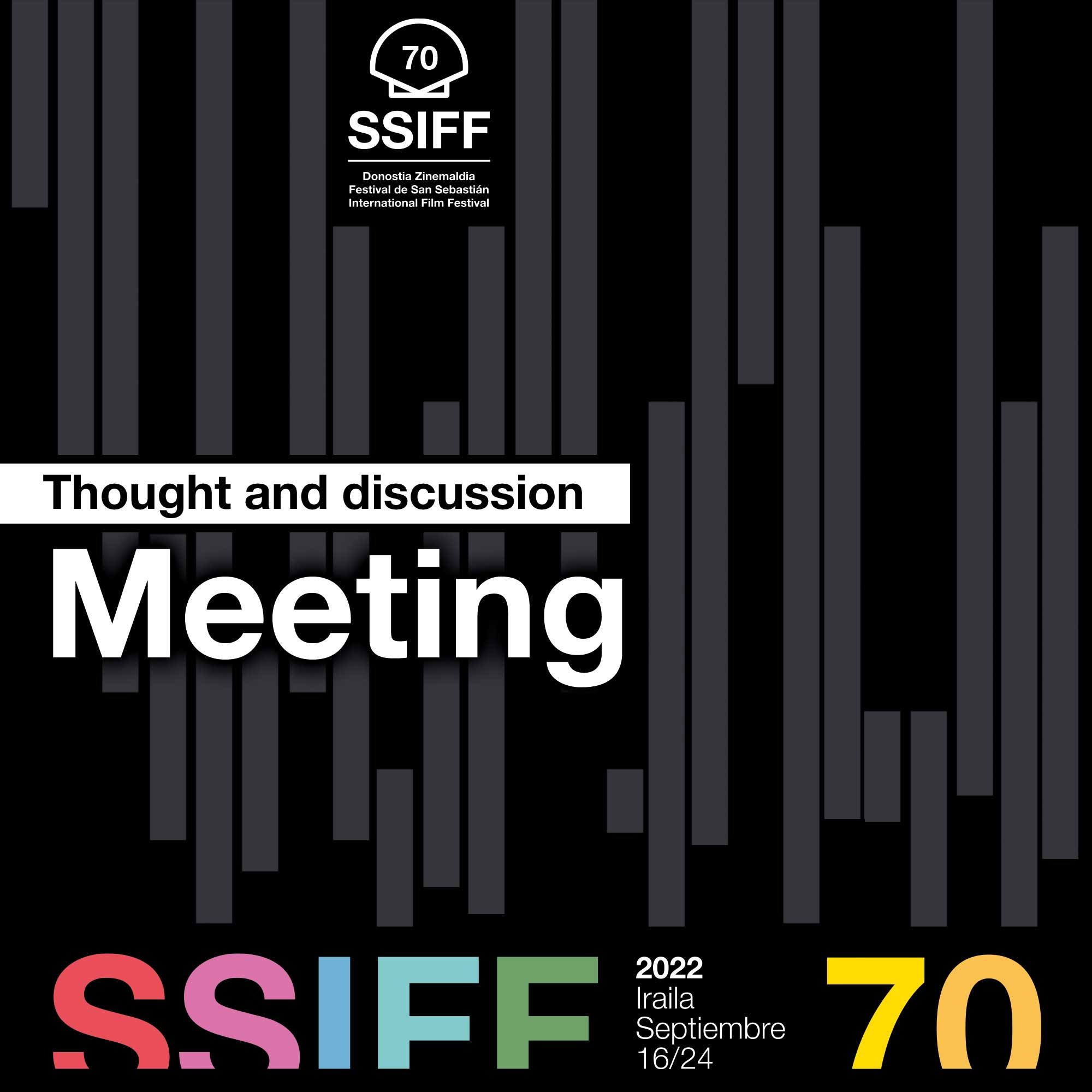The San Sebastian Festival, the groups making up the Interterritorial Work Group on Equality in Audiovisuals 50/50 by 2025 (GTI) and CIMA, the Association of Women Filmmakers and Audiovisual Media, have completed a year of joint work, having achieved a number of outcomes including the drawing up of a protocol on prevention and action in the event of sexual and gender-based abuse and inclusion of the foley sound professional category in the report on participation by gender.
Following the first work meeting on gender equality held at the 69th edition with the participation of representatives of the San Sebastian Festival together with collectives belonging to the Interterritorial Work Group on Equality in Audiovisual Media 50/50 by 2025 (GTI) – (H)emen (Emakumeentzako Ikus-entzunezko Elkartea), AAMMA (Asociación Andaluza de Mujeres de los Medios Audiovisuales), AMMA (Asociación de Mujeres de Medios Audiovisuales de Murcia), DONA I CINEMA (Associació de dones del País Valencià), DONES VISUALS (Associació Promotora de Dones Cineastes i de Mitjans Audiovisuals de Catalunya) – and CIMA, the Association of Women Filmmakers and Audiovisual Media, it was agreed to establish constant and binding discussion to deal with issues such as equality and the inclusion of diversity and advancing gradually and jointly.
As far as the outcomes of the joint work carried out over the last twelve months by the Festival with the associations (H)emen, AAMMA, AMMA and DONES VISUALS are concerned, as well as the actual discussion and the determination to continue working together, is the protocol for prevention and action in the event of sexual and gender-based abuse with the goal of establishing a procedure should such situations arise in the Festival context. This is a tool with which the Festival reinforces its proactive approach towards the prevention of abuse (by raising awareness and issuing information on behaviour not tolerated by the company), the circulation of best practices and introduction of the necessary measures.
In addition, from this year on, the report analysing the participation by gender in films screening at the Festival in the categories of direction, production, screenplay, photography, music and editing, published by the San Sebastian Festival since 2019, now comes with a new professional category: foley sound. The idea is to add new categories every year with a view to obtaining the most detailed and precise X-ray possible of reality in the film industry.
This year’s data on participation by gender will be revealed in detail in the report on gender identity to be published towards the end of the year. However, without making an in-depth analysis, we can see from the programme that the Festival’s desire to contribute to gender equality is visible in the makeup of the round tables, the masterclasses and the juries tasked with deciding the official awards. It can also be seen in sections such as New Directors, dedicated to the first and second works by their filmmakers, an aspect not equally represented in the Official Selection, due to a number of factors, such as the idiosyncrasies of the festival circuit and the self-same structures of the film industry where, year after year, the presence of women amounts to no higher than 30% in the majority of professional categories. This is why the Festival wishes to convey its concern to the institutions and the industries, actors without which it is difficult to continue working towards equality.
One of the first conclusions of these four years of reports points towards the fact that participation in films is more balanced from the gender identity point of view in the case of those taking their first steps in the film world (in short film competitions, in the sections screening debut films, in industry initiatives when the film is at the project stage). In other words, the difficulty does not lie so much in accessing the film industry as it does in staying there. In this respect, the Festival maintains its commitment to monitor and observe whether the new projects by women directors and screenwriters showing in New Directors have access in the following years to the official competitions of this and other international festivals, and whether or not the women producers, cinematographers, editors and music composers coming from film schools go on to develop a cinematic career.
The Festival, in its joint work with the associations, maintains its objective to strengthen the presence of films made by women in all selections. The Festival, CIMA and the feminist associations from the GTI will hold another meeting tomorrow, Friday 23, in Tabakalera.





